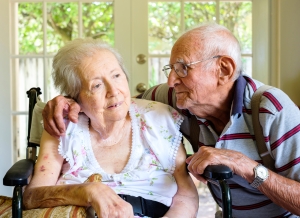Health issues of the elderly
The first thing that I have to say is that I’m not a nurse, I’m a solicitor, but I’ve worked with the elderly for years now and in particular in respect of NHS Continuing Care claims for 8 years. I often use the argument that whilst I may be a mother and have therefore wiped up both vomit & diarrhoea in that capacity, it does not make me an expert carer and that skilled professional care is required, not just the skill set I have. I have immense respect for the professionals that provide day to day care for the sometimes very challenging healthcare needs.
What I have noticed though is a number of similarities in some cases, although I have to say that only some aspects have commonalities, I have never met two people who are the same. Having said that, the elderly often have a generic breakdown of the body, which often takes the form of some kind of heart condition. Their skin is nearly always fragile and their mobility is often impaired, which might just take the form of them being slightly stiff or difficulty getting out of a deep sofa or it might be more significant.
People often don’t understand is how devastating a chest infection or urinary tract infect (UTI) can be. These infections appear to create a kind of toxicity in the body, which means that the individual appears to become physically very frail. It also affects them mentally and they can appear confused or more confused than normal. It is therefore the clearing of the infection via anti-biotics that appears to be a miracle cure for both old age and dementia, but it is in fact the resolution of the infection and toxicity that has taken place.
So in care homes, people have some paracetamol on prescription available to them or given regularly, in case they feel pain from the wear and tear that their bodies have had over a lifetime. They also have an emollient for their skin, as their skin struggles to produce oil and struggles to heal well if it is damaged. Both of these are a massive generalisation and every person is treated should always been given suitable treatments and it may not include these.
These days one of the key phrases that is used a lot is “person centred care”, which means that care is all about that one person and their individual needs and no-one should be treated like a generic older person. It is therefore the things on prescription beyond that that are individualised to the healthcare needs of that person, although all of the above would be individualised, but are nevertheless commonly found.






Your blog is an excellent resource for anyone seeking for valuable information on a variety of topics. Thanks for all that you do.
Thanks for sharing your expertise; I’ve learned a lot from your post.
This blog is a impressive resource for anyone seeking to learn more about these topics.
I eagerly anticipate your fresh and distinctive perspectives. It keeps me returning for more.
You managed to explain a complex subject with simplicity; well done!
This site provides a wealth of valuable information on a variety of topics. Thanks for all that you do.
Your blog consistently captures my attention, compelling me to read each word with great interest.